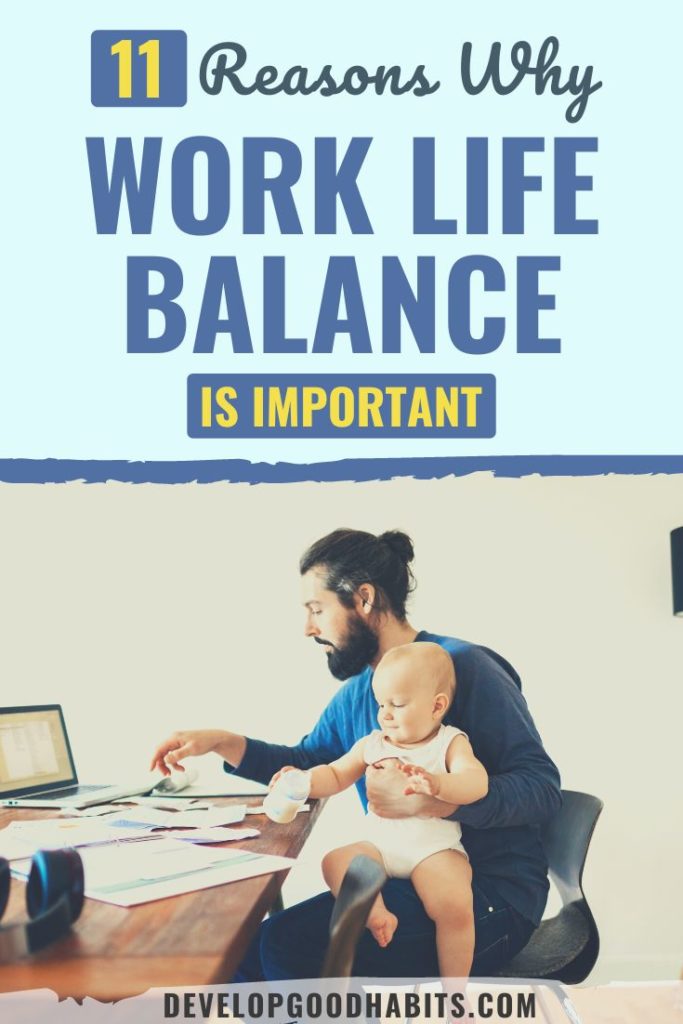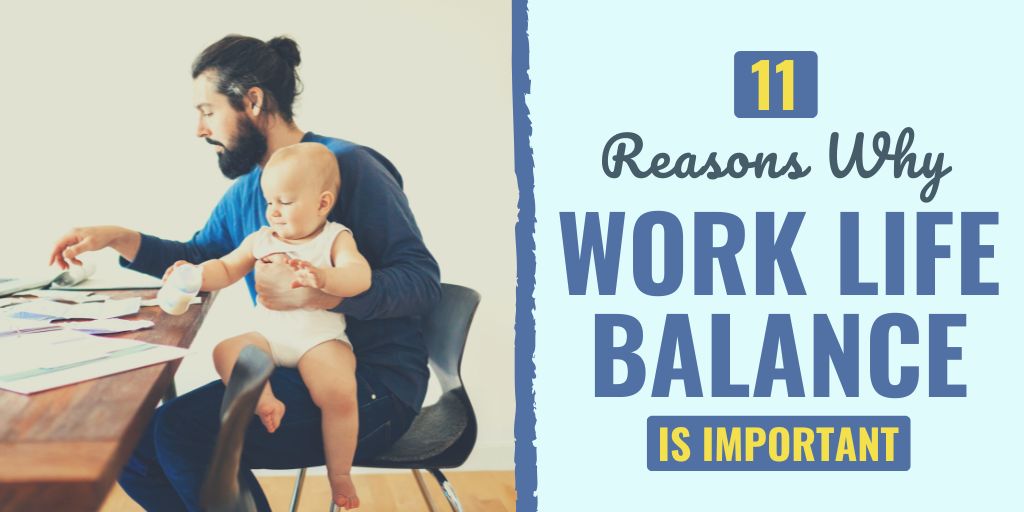There might be affiliate links on this page, which means we get a small commission of anything you buy. As an Amazon Associate we earn from qualifying purchases. Please do your own research before making any online purchase.
How many times have you heard or read about the importance of work life balance and said to yourself, I can do that? I know you genuinely want to accomplish that goal because, after all, all work and no play make life seem dull. The work-life balance concept isn’t new and does sound appealing—in theory. The truth of the matter is balancing work and other responsibilities is vital for your health and well-being.
It’s achieving the balance that seems somewhat challenging and sometimes elusive. The statistics speak for themselves. More Than Half of Americans Have Unhealthy Work-Life Balance, according to an article by EHS Today, an American occupational health and safety magazine. Reportedly, an estimated 60 percent of U.S. employees crave more time to unwind. If only they could escape the trap of an unhealthy work-life dynamics.
Escaping the “trap” is possible once you put your mind to creating the right balance. Life will begin to take on new and positive meaning. The things you thought you’d never find the time to do become very much a possibility. Hopefully, you begin to feel enthusiastic as you unravel 11 reasons why a balanced lifestyle is essential. Also included for your reading pleasure are quick tips on how to achieve that balance.
What Is Work-Life Balance?
The term work-life balance is used to assess how working people prioritize the demands of their careers and the demands of their personal life. People who manage to strike equilibrium are said to have established a good work-life balance. The result is a fair trade-off between time dedicated to working or chasing after their careers and time spent on physically and emotionally satisfying activities.
Why a Healthy Work-Life Balance is Such a Big Deal?
Feeling like you don’t have a life? You’re not alone. A healthy balance is essential to prevent issues in the areas of health, finances, and productivity.
Too much work and little time for family, relationships, and rejuvenation eventually take a toll. Stress, fatigue, physical exhaustion, resentment, irritability, low motivation, and emotional burnout are all potential effects connected to an imbalanced lifestyle.
Results from a survey by Deloitte found that 77% of professional employees experienced work burnout at least once. Work-related stress has been linked to an increased risk of blood pressure, heart disease, and stroke, according to Cleveland Clinic.
Your work-life balance can also be off if you’re prioritizing leisure over work or doing too much living and less working. What’s going to happen when the bills are due? Work has to be as important as pleasure activities unless you have someone stepping in to pay the mortgage, car note, and all the other living expenses. Balancing the scale will let you work and live and have extra time to reconnect with your inner self.
The standard full-time work shift is eight hours a day. After that, you’re into overtime. Interestingly, production levels drop after eight hours of physical and/or mental output. The body and the brain start slowing down, leaving workers feeling tired and less motivated. Those findings were reported in a recent research. The research also suggested that the negative impact on health increases significantly.
I have to admit, I struggled with these issues until my personal life coach discussed the importance of work-life balance. He emphasized that too much work and little time for family, relationships, and self-care isn't ideal. All along, I thought I had it together.
It was then that I figured out why I was feeling super stressed and resentful most of the time. I was working more than eight hours a day and too tired to do anything else afterward. It wasn’t fair to me or my family.
What’s the point of trying to excel at the job on one end and losing yourself and your relationships on the other? According to BetterUp, “Workaholics and those who struggle to practice self-care find themselves at higher risk for burnout, fatigue, and stress-related health issues.”
Remote Working Impact on Work-Life Balance
The coronavirus pandemic changed the way Americans work. The percentage of people working from home skyrocketed from 20% to 71%, according to Pew Research Center.
People working remotely may think they’re in a better position to finally strike that balance. Quite the contrary. Working from home is where many people’s careers and family life went off-kilter. They found themselves working far more than the usual eight hours and are less productive than those at work.

More flexibility to work and simultaneously caring for the family is one of the benefits. However, that resulted in a need to continue working after hours. Constant distraction in the home environment doesn’t help either. It leads to low productivity and efficiency and added stress from having to rush to complete work in a shorter space of time. Workers are left mentally spent at the end of the day.
Added to that, prolonged periods of sitting for work and isolation at home have negative effects on physical and mental health.
11 Reasons Why Work-Life Balance Is Important
Isn’t it time you set boundaries between work and living? Creating a more balanced lifestyle is a serious and imperative undertaking. If you never understood why there’s so much research and written work about accomplishing this particular goal, the following reasons ought to put things in perspective.
Reason #1. Lowers Stress
A quarter of Americans point to their jobs as their number one source of stress. Added to that, workplace stress is one of the most difficult types of stress to cope with. You have to work at least 5 days a week (if you’re full-time). Staying employed is necessary for your livelihood and it’s not like you could change the workplace environment or nature of your job by flipping a switch.
You’re pretty much stuck until you find a less stressful job because, in reality, there’s no such thing as a stress-free work environment. The trick is to have a life outside of work that will function as a buffer and help lower stress both at work and home. Managing stress alone can minimize issues like psychological distress, anxiety, emotional exhaustion, and depression, according to studies.
Reason #2. Increases Productivity
Why do you think most if not all working people with traditional hours hate Mondays and not Fridays? Thank God it’s Friday! You’re happy to down tools and have fun. Those hating Mondays the most might feel that way if they didn’t capitalize on their off days, unwinding and seeking pleasure.
Starting a new work week rejuvenated puts you in the right frame of mind to tackle tasks head-on. When you go to work with a happy and more positive mindset, there’s more motivation to work and achieve employment goals. Increased concentration, focus, and motivation typically mean higher performance and productivity levels. By the way, if your boss asks “What’s gotten into you?” don’t be shy to say, “A work-life balance.”
Reason #3. Reduces Burnouts
A recent study by Gallup found that “two-thirds of full-time workers experience burnout on the job” and 63% are more likely to take a sick day. Burnout, or emotional and physical exhaustion, associated with working is quite common. It can happen whether you have a sophisticated, high-end job or you flip burgers at a local fast-food joint.
Work is work and it seldom, if at all, discriminates. For you, it might be unfair treatment and, for others, an unmanageable workload that’s causing burnout. While some employers see the issue as a “part of the job,” you have a responsibility to yourself to know your limit or breaking point.
While burnout is a cause of employee resignation, quitting your job might be a drastic solution. Why not consider taking breaks, delegating, or asking for more flexibility from your employer? Taking those steps can minimize exhaustion, illness, sick days, and a need to quit.
Reason #4. Boosts Mental Health
Have you ever wondered why there’s such a thing as “overtime” and why your pay increases after regular work hours? Working overtime means you’re working on leisure time. Your labor becomes far more valuable as a result. Ask yourself whether you wish to trade your physical and mental health for a few extra bucks.
Go home and relax, watch your favorite show, and fix yourself a healthy meal to balance the day off. Stress levels drop when you’re resting and at ease. Pleasurable activities help improve your mood and provide a sense of well-being. Quiet time also allows you to process your day and put it in perspective, as well as create more self-awareness.
“When you feel balanced you’re more capable of dealing with negative thoughts and emotions,” says Lawyer Career Coach Heather Moulder, J.D., ACC.
Reason #5. Improves Your Relationships
Working too much can negatively impact your relationship and family life. Furthermore, being able to create balance at work helps reduce workplace stress and gets you out of the office in a decent time.
The upside to that is you’ll likely come home less tired, overwhelmed, or agitated. You won’t have to lock yourself away for the rest of the day to decompress. You’ll have the energy to stay emotionally and mentally connected to your partner and have dinner with your family.

The benefits also extend to your friendships. Putting limitations on work leaves you with the energy to socialize and have fun. Deeper bonds are created and life has more meaning the more you connect and have shared experiences with those you care about.
Reason #6. More Time to Pursue Personal Goals
Attention to goals goes out the window when work is dominating your life. Understandably so. After all, it’s difficult to think, make decisions, and be creative when you’re stressed and fatigued. Deciding on a cut-off time for work will leave you with time for working on your goals and other personal development matters.
If you’re new to goal-setting, 36 Examples of Personal Development Goals for Your Career and Life is packed with stimulating ideas. Some goals can be achieved more efficiently using the SMART goals methods and using a vision board as a daily visual reminder.
Reason #7. More Opportunities to Enjoy Your Hobbies
When was the last time you went to the gym or challenged your friend to a game of lawn tennis? Having and being able to enjoy hobbies not only adds another dimension to life, but it also promotes a well-rounded lifestyle.
Associate psychology professor at San Francisco State University Kevin Eschleman says a hobby can help “If you’ve been depleted or pissed off at work,” and also “helpful for people experiencing some burnout or high stress.”
Creative hobbies such as cake decorating, journaling, or painting are just as relieving if you feel stressed or anxious after a long day at the office. Did you know journaling has health and mental well-being benefits?
Reason #8. Better Physical Health
Disconnecting from work physically, emotionally, and cognitively and enjoying pleasurable activities during your downtime also have a positive impact on your physical health. There’s time to exercise and relieve stress, prepare a healthy meal, socialize, and get adequate sleep all on the same day if you manage your free time well.
Establishing daily routines is a proven way to successfully start your day right and navigate through the rest of your day. You’ll get a lot done in less time and feel like your day was worthwhile. Activities such as morning walks, exercise, and tracking your goals can feature in your routines. Over time, healthy routine activities naturally turn into good habits. Check out 9 Morning Routine Apps to Start Your Day Right
Reason #9. Higher Level of Job Satisfaction
Have you ever seen any of your co-workers coming to work with a smile on their faces? It might have to do with a work-life balance. The more your life and relationships outside of work are going well, the less going to the job site feels like a burden.
You’re likely to be more open to communicating with co-workers and engaging in workplace activities. This gives a sense of connection and belonging within the organization. When we view the workplace a meaningful part of our lives, we tend to be more passionate about and satisfied with our jobs.
In fact, empirical research concluded that work-life balance “positively influences job satisfaction and performance.”
Reason #10. You’ll Feel Better about Yourself
Designating time to sit and enjoy healthy meals, exercise, spend time with family, socialize, and self-care routines have many benefits for mental, emotional, and physical health. Those and other feel-good activities, such as meditation, are important for maintaining a balanced mood and overall make you feel like you’re actually living. There’s a sense of personal accomplishment at the end of the day.
When you feel good about yourself (positive self-image), you’re less likely to engage in negative self-talk and suffer decreased motivation or helplessness. Feeling upbeat and self-confident is helpful in shielding yourself from a stressful work environment.
Reason #11. Promotes a Sense of Purpose and Fulfillment
Life isn’t meant to be lopsided in favor of work. No wonder you feel emotionally drained and as if something’s missing. There’s a deep sense of emptiness and lack of purpose. According to Emotions Matter, feeling unfulfilled in your relationships with others, disaffected at home and at work, and asking what’s the point of life can arise from experiencing a lack of purpose.
Some people begin to consume alcohol, use drugs, or engage in other destructive behaviors to cope or fill that void. What’s probably missing and needed is a work-life balance—one that’s healthy and supports both your professional and personal needs. Paying greater attention to the things that make you feel like you’re living on purpose, e.g., following your passion, can eliminate feelings of emptiness.
Ways to Improve Your Work-Life Balance
Balancing career and family demands can be tough, so how do you really strike that balance? Establishing a distinct line between work and the rest of your life is an essential starting point. Here are more tips for establishing boundaries and maintaining balance:
At Work
Away from Work
Final Thoughts on the Importance of Work Life Balance
Disconnecting from work physically, emotionally and cognitively – and plugging into feel-good life activities that create balance – is perfectly acceptable. Plus, establishing a sustainable way to satisfy professional and personal responsibilities, as well as your spiritual needs, can minimize workplace burnout and health risks.
There’s no magic formula. The structure created to achieve a balanced lifestyle will differ from one person to another. The overarching goal is to equally satisfy your career and other life responsibilities. You’ll function better in mind and body when you’re replenished, reenergized, and feeling your best.
Now that you have a new perspective on work and life, take a look at 23 Good Work Habit Examples to Build a Successful Career.


